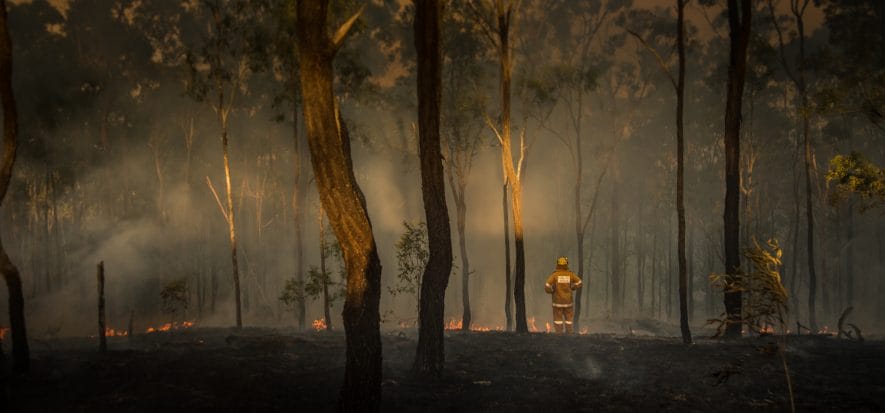No wonder blazes have been affecting Australia’s livestock and farming industry: in fact, fires are actually hitting the meat industry. According to estimates, cattle slaughtering is going to drop by 15%. Meat & Livestock Australia (MLA) provided such estimates, which refer to the current year. According to the Australian institute, throughout 2020 slaughtered livestock units are due to go down to 7.2 million, which has been the historical low since 1992. Due to drought, which has been relevant, in 2019 domestic bovine livestock units decreased. In the meantime, Coronavirus outbreak, which is hitting China, might help Brazil’s meat exports.
Blazes affect meat industry
According to Meat & Livestock Australia, “2020 is going to be one of the hardest years ever”. “In 2019, Australian manufacturers had to cope with the hottest and driest weather conditions, further worsened by floods and blazes at the end of the year – as reported by MLA –. Despite difficulties, worldwide and domestic demand for bovine meat keeps sound, therefore supporting cattle prices. As regards supply, in the next two years quantities are due to decrease considerably”. Although January rains have made farmers more confident, MLA expect adult cattle slaughtering to decline by 15%, down to 7.2 million units. “According to our expectations, last year’s extreme conditions impact will probably affect, to a remarkable extent, slaughtering in the first quarter as well”.
Bovine livestock units decline in number
As we just said, MLA also expect bovine livestock units to drop by 5.8% on annual basis. By the end of June, they are likely to reach 24.7 million units (-12.4% since June 2018). Meat production is going to decrease, supposedly, by 15%, down to 2.1 million tons. Exports will expectedly drop by 16%. This is going to be one of the lowest levels in the last few years; not the historical low though, which dates back to 2013.
Brazil to go up
As reported by Reuters, both Brazil’s meat industry giants, JBS and BRF, expect their business turnover to go up in the next few months. In fact, Coronavirus outbreak, in China, might foster demand for meat. Apparently, in fact, consumers are concerned, a great deal, about the safety standards of local foodstuffs. They assume that virus outbreak began at the end of 2019, first spreading around from a few markets situated in the city of Wuhan. Here, allegedly, they used to sell illegally some wild animals. As reported by Reuters, on February 5 Lorival Luz, president of BRF, made a public statement: “All of BRF meat-based products, frozen and processed, are strictly subjected to security check in Brazil, prior to their export on a worldwide scale”. According to data provided and made public, on the same day, by Associação Brasileira das Indùstrias Exportadoras de Carnes (ABIEC), Brazil’s association of meat exporting companies, in January Brazil’s exports of bovine meat increased by 9.84%, mostly driven by soaring sales in China. In the first month of the year, Brazil exported 135,375 tons of bovine meat: revenues from sales amounted to 633.25 million dollars.
Picture taken from Shutterstock
Read also:










